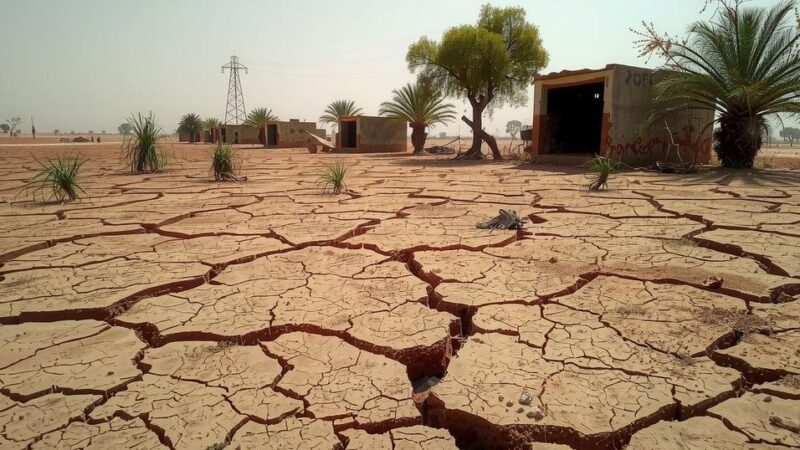The Trump administration, in partnership with Israel, is considering resettling Palestinians from Gaza in Sudan, Somalia, and Syria. Discussions suggest that no forcible expulsion will occur, and plans aim to address humanitarian needs. However, responses from targeted countries vary significantly, reflecting ongoing regional tensions and concerns over the implications of resettlement.
The Trump administration, alongside Israel, is exploring the resettlement of Palestinians from Gaza in Sudan, Somalia, and Syria. Sources indicate that discussions with the governments of Sudan and Somalia have been initiated, considering these countries for potential resettlement as part of broader strategies to address the humanitarian crisis resulting from the ongoing conflict in Gaza.
President Trump emphasized during a recent meeting that no Palestinians would be forcibly expelled. He presented the concept of international cooperation, suggesting that countries with humanitarian interests might assist in building new communities for Palestinians currently in Gaza, which he envisioned becoming a prosperous region.
Diplomatic sources have reported communication between Israeli and American officials with regard to Sudan and Somalia. Furthermore, the Trump administration has expressed interest in exploring options with Syria’s new interim government. However, the response from these countries remains unclear, with a Syrian official stating no contact had been made.
Somalia’s ambassador to the U.S. indicated that the Somali government had not been approached regarding this resettlement plan and raised concerns that such unverified claims could fuel extremist recruitment. Sudan, currently facing civil unrest and humanitarian crises, has not responded to requests for comment from CBS News.
President Trump has suggested that the departure of Palestinians from Gaza might be permanent, citing that Gaza is not suitable for habitation in the foreseeable future. His suggestions have drawn criticism and accusations of ethnic cleansing from Arab leaders and some U.S. lawmakers, while an alternative reconstruction plan from Egypt was rejected by U.S. and Israeli officials.
Former President Biden’s administration had engaged with Syria prior to Trump’s inauguration, but outreach ceased thereafter. The newly established Syrian leadership condemned Trump’s remarks, deeming them a serious crime. Calls for direct engagement with Syria have increased, highlighting the need for effective policies to foster stability in the region.
Since December, Israel has intensified airstrikes in Syria, targeting perceived threats amid ongoing tensions. The U.S. State Department has referred inquiries to Israel and emphasized collaborative efforts to improve conditions for Palestinians in Gaza. Special envoy Steve Witkoff mentioned exploring options for Palestinian relocation to various neighboring Arab nations and beyond, aiming for improved living conditions for displaced Gazans.
Displaced Palestinians already exist in significant numbers across neighboring Arab states such as Jordan, Syria, and Lebanon. The dialogue surrounding the relocation of Palestinians by far-right Israeli officials combines historical claims with security considerations. A formal statement from the Israeli government and related U.S. entities has yet to materialize regarding the matter, as interest in Gaza’s potential development continues to surface.
In summary, the Trump administration, in collaboration with Israel, is exploring the potential resettlement of Palestinians from Gaza to Sudan, Somalia, and Syria as part of a broader strategy to address the ongoing humanitarian crisis. However, the responses from these countries remain uncertain, with various officials emphasizing the lack of communication regarding the proposals. Amidst widespread criticism of these plans, the dialogue continues to evolve as key stakeholders examine options to enhance the living conditions of Palestinians affected by the conflict in Gaza.
Original Source: www.cbsnews.com






